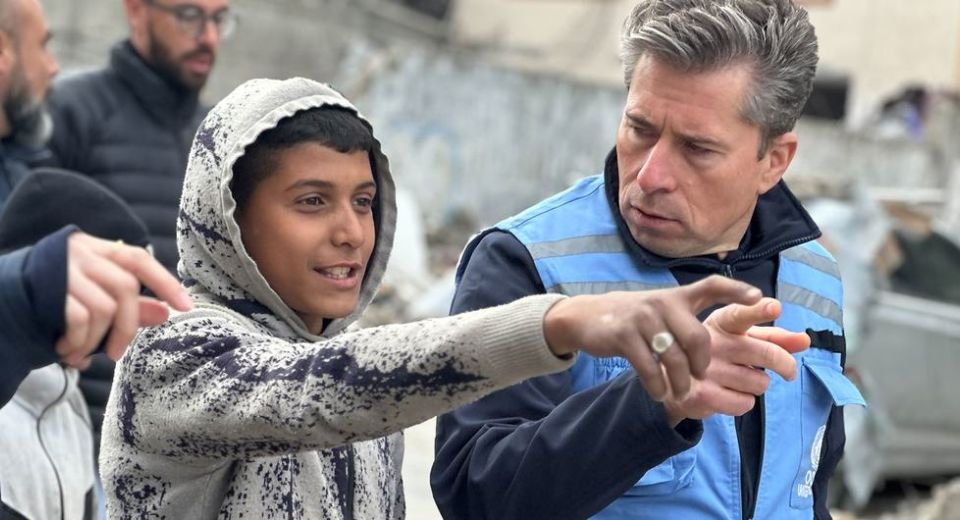HQ Team
February 21, 2025: The international humanitarian aid system of the United Nations, set up after the Second World War, is facing the “greatest test since creation” due to low morale, poor funding and a legitimacy crisis, a UN official said.
“The humanitarian community confronts a massive funding, morale, and legitimacy crisis,” said Tom Fletcher during an address at the Inter-Agency Standing Committee — set up by the UN General Assembly in the early 1990s as a coordinating forum for humanitarian aid worldwide.
The comments were personal reflections based on earlier discussions within the committee, he said.
“We took time to recognize the devastating impact that funding cuts will have on those we serve, our partners, and our teams,” he continued.
Without referencing any specific loss in funding – but against the backdrop of a suspension of most humanitarian spending by the new US administration – Mr. Fletcher appealed for the aid community to be “calm, brave, principled, and united.”
Four priorities
He said they need to make the case strongly for greater international solidarity.
“We can draw confidence from extraordinary progress made by humanitarians over decades. The mission is right. Our allies are still out there. But the delivery system is struggling. We need to be lighter, faster, and less bureaucratic.”
The UN relief chief said there needed to be four priorities: first, be clear that saving lives is paramount.
“We agreed to remain independent, neutral, and impartial. This does not mean we do not pick a side: we are on the side of those in greatest need.”
Secondly, he said duplication and bureaucracy must be pared down under a new “bold plan” of action.
Turf wars
“Donors must simplify too. We must innovate or become obsolete. We will prioritize robustly and make the toughest choices. I have commissioned urgent work to identify how we could reach the 100 million people in greatest need.”
Aid agencies must find new partners, not just rely on traditional sources and governments, he said. This must include “genuine partnership” with the private sector and the World Bank.
“I believe there is a movement of billions of people who care, and who want to act in solidarity with those in most need. We should launch a public campaign to fill in the gaps left by governments, targeting the equivalent of 0.7% for each country.”
Turf wars between agencies need to end with each organization focusing on what it does “uniquely well,” he said.
‘Cost of inaction’
Leadership needs to be empowered with authority vested in UN Humanitarian Coordinators throughout the system.
Thirdly, there needs to be more devolution, giving more power and accountability to local partners who are suffering the most from cuts.
Finally, aid workers need to defend their work more robustly.
“We need to call time on the era of impunity: end attacks on civilians and aid workers; and hold perpetrators to account. We must communicate more clearly the impact we have and the cost of inaction, with humanity not institutions at the heart of the story.”
Humanitarians worldwide are “underfunded, overstretched and under attack,” he declared, but the argument for lifesaving aid has not been lost: “Our cause is mighty, and our movement is strong.”








